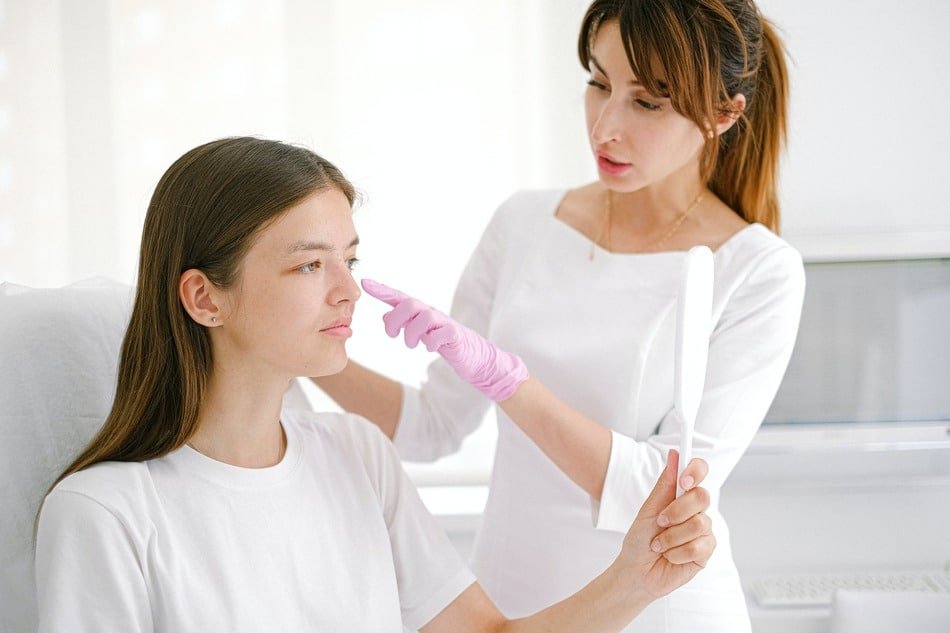Acupuncture is a proven and safe treatment for a lot of conditions, from chronic and acute pain to depression, yet, that does not mean it has no downsides. Some people do experience acupuncture side effects after treatments.
Luckily, the adverse effects of acupuncture are rare, short-lived, and mild. However, let’s not leave it at that but discuss the details so that you can make an informed decision about the safety of acupuncture treatments.
How Common Are Acupuncture Side Effects?
There are many short- and long-term benefits of acupuncture, but, as with any type of treatment, some patients may experience adverse effects. So, how common are the side effects of acupuncture? A survey that included 6,348 acupuncture patients over a period of three months found that 682 patients, or 10.74%, reported at least one adverse effect over that period.
That would mean that you have about a 1/10 chance of experiencing some negative symptoms after an acupuncture session. Now, for most people, a 1/10 chance is quite high, so how can we claim that acupuncture therapy is a safe medical procedure? The answer lies in the type of adverse effect you may experience – the most common ones were pain at the needling site and tiredness.
These are mild and transient symptoms that don’t significantly affect your quality of life and don’t outweigh the benefits of acupuncture, such as pain relief or emotional management. Only three out of the 6,348 patients who completed the survey reported significant adverse effects after acupuncture treatments, which is just 0.04%. Still, let’s delve a little deeper into those common side effects.
The Most Common Adverse Effects of Acupuncture
A comprehensive medical literature review that encompassed 535 systematic reviews that examined individual occurrences of adverse effects after acupuncture treatments found that the three most common acupuncture side effects are:
- Tissue injury (in 233 cases)
- Pain (in 144 cases)
- Bleeding or bruising (120 cases)
Some other common negative symptoms include dizziness or even fainting, fatigue, and emotional release. The risks of acupuncture can be more threatening, namely, infections, and, worst case scenario, organ damage.
Tissue Injury and Pain
Acupuncture is the practice of inserting a fine hairlike acupuncture needle into acupoints. For reference, acupuncture needles are much thinner than those used for injections or blood draws. However, although the needles are designed to be minimally invasive, some amount of injury to your tissue may happen, medically called sharp injuries.
Naturally, the chance of injury increases if you are visiting inexperienced or untrained acupuncturists. You may also experience some amount of pain at the needling sites. However, these side effects of acupuncture are mild and pass quickly.
Bleeding or Bruising
Similarly, you may bleed a little or bruise from the acupuncture needles. Acupuncture points are located close to blood vessels, and although acupuncture therapists are trained to avoid puncturing even small blood vessels, it does happen. Again, these adverse effects are transient and mild.
However, there can be complications if you have a pre-existing bleeding disorder or are taking anticoagulant medicine. In such cases, make sure you inform your acupuncturist before treatments so that they can take the appropriate measures.
Fatigue

Acupuncture is usually associated with feeling relaxed and mental clarity, but sometimes you may feel fatigue after acupuncture. This is not cause for concern, this is your body’s way of showing you your true energy levels. Acupuncture can lower your stress, thereby letting you feel how exhausted you truly are.
Fatigue is more common for people who have been pushing themselves for a long time and typically happens at the beginning of treatments. If you do experience this negative side effect, listen to your body and give yourself time to rest. You should feel better within a day or two.
Dizziness and Fainting
Dizziness or fainting after acupuncture may occur due to anxiety, an overwhelming fear of needles, or a drop in blood pressure. The body’s response to needle insertion can trigger relaxation, which causes your blood vessels to dilate and lower blood pressure. This can lead to a temporary feeling of lightheadedness or even a fainting spell. Dehydration, hunger, or getting up too quickly after a session can exacerbate these symptoms. Consequently, it is important to eat and hydrate prior to your appointment to minimize the chance of experiencing acupuncture side effects.
Emotional Release
Acupuncture can lead to emotional release – when your suppressed emotions are brought to the surface. Certain acupoints are associated with emotional centers and acupuncture for emotional and mental health stimulates these centers.
While this is generally viewed as a positive response, if you were harboring strong negative emotions, you may experience short-term bouts of crying or sadness which can make you uncomfortable. However, the path to emotional healing lies in acknowledging your emotions, so this is a necessary step.
Minimizing Side Effects and Maximizing Benefits
The best way to avoid acupuncture side effects and maximize the benefits of treatments is to visit acupuncturists with a proven track record. That is what BH Acuhealth Clinic is. We are a licensed acupuncture clinic in Beverly Hills that provides acupuncture, cupping, and auriculotherapy.
You can rest assured that we will treat you with the care you deserve and take all the safety precautions necessary, including consulting with your other healthcare providers to come up with the optimal treatment plan. If you have any concerns, make an appointment and we will discuss all the details regarding your therapy in person. 

